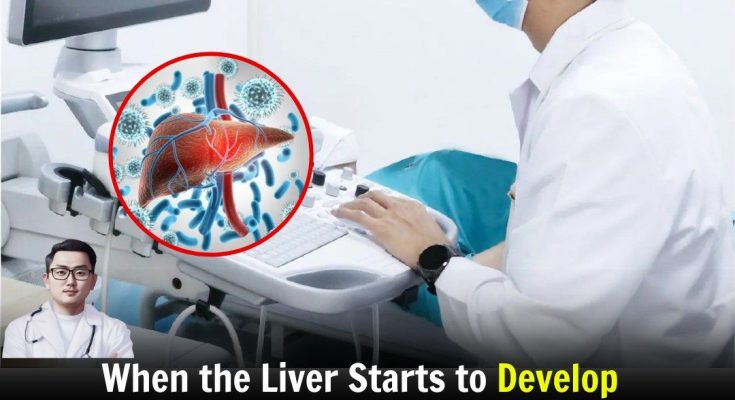Whether a person is thin or overweight, the liver can still be affected by cancer.
One of my neighbors suddenly fell ill. He was just about to dance with everyone, and then he was rushed to the hospital. People started talking—some said the doctor mentioned it had to do with his liver.
His wife was stunned and quickly searched online for more information. She discovered that liver cancer isn’t necessarily linked to being overweight or underweight, which made her even more anxious.
So, what signs should you look for to catch liver cancer early?
The liver is the body’s “chemical factory.” During festive seasons, it’s even busier than a chef—handling detoxification, metabolism, and nutrient storage. Yet the liver is a silent organ, rarely showing complaints when it’s under stress.
Because of this, liver issues often develop quietly and go unnoticed in the early stages. By the time symptoms emerge, the disease may have already progressed significantly—like a flood that arrives without warning.
When it comes to liver cancer, it’s important to understand: the disease doesn’t happen overnight. Its development is a slow process, like a frog being boiled gradually. Early symptoms may be subtle, but ignoring them for too long could lead to severe consequences.
Digestive Problems: The Most Common Early Signal
When the liver is in trouble, the most common early signs are often digestive disturbances. Many people think indigestion or bloating is a minor issue, easily fixed with antacids.
But in reality, the liver and digestive system are closely linked—after all, the liver secretes bile, which is crucial for fat digestion.
When liver function weakens, bile production decreases, and the body can no longer properly process fats. As a result, you may unknowingly struggle to digest your meals. Over time, this leads to nausea, loss of appetite, and unexplained bloating.
If this continues for an extended period and is accompanied by weight loss, it’s time to be on high alert.
Constant Fatigue: A Common but Overlooked Symptom
Fatigue and general weakness are common signs of liver issues. As the center of the body’s metabolism, when the liver’s efficiency drops, toxins and waste accumulate. This causes people to feel persistently tired, no matter how much they rest—like a battery that keeps draining.
Many dismiss this as stress or overwork, but in some cases, the liver is the real culprit.
Jaundice: The “Golden Face” Symptom
Liver cancer can cause your skin to turn yellow, a condition medically known as jaundice. The liver is responsible for processing bilirubin in the blood. If the liver can’t handle this task, bilirubin builds up, turning the skin and eyes yellow.
If you notice yellowing of the skin or eyes, even if it seems mild, don’t wait—get it checked immediately.
Hormonal Changes
The liver also plays a vital role in hormone metabolism. When it fails, hormone levels can become unbalanced. Men may develop breast tissue, and women may experience irregular menstruation. These changes might seem minor, but they are warning signs that liver function is deteriorating.
Skin Symptoms: Bruising and Red Palms
Red spots on the palms or unexplained bruising may also signal liver issues. Poor liver function can reduce the production of clotting factors, meaning even a small bump can lead to visible bruises. Spider angiomas (small clusters of blood vessels under the skin) are also typical signs of liver disease.
Hearing the Liver’s Alarm: Telltale Signs
Despite the variety of early symptoms, they all point to one thing: the liver is in trouble. Unfortunately, these signs are easy to ignore because the liver doesn’t contain pain receptors. By the time you feel pain, the disease may already be advanced.
But you don’t have to wait for obvious pain to take action.
Persistent Itching: An Unexpected Sign
Most people associate itching with dry skin or allergies. But if your skin itches without an obvious cause and worsens at night—especially with a yellow tint—it could be your liver crying out.
When liver function declines, bile acids may accumulate in the blood, stimulating nerve endings in the skin and causing intense, persistent itching. Unlike typical itching, lotions or antihistamines offer no relief.
Abdominal Swelling: Not Just Bloating
If your abdomen becomes swollen and hard—not from overeating, but due to fluid buildup—you may be experiencing ascites, a result of liver dysfunction. This happens when the liver can no longer produce enough proteins to maintain fluid balance, causing fluid to leak into the abdomen.
At first, this may feel like minor bloating, but over time it can become severe, making it hard to breathe or move. It’s critical to differentiate this from regular indigestion—if the swelling continues or worsens, seek a detailed ultrasound and liver function test immediately.
The Subtle Nature of Liver Cancer
Many early signs of liver cancer are not painful or obvious. People often dismiss them as minor issues until it’s too late. That’s why regular checkups and careful monitoring of changes in your body are essential.
Unexplained itching, persistent fatigue, loss of appetite, abdominal swelling, jaundice—these are all signals. They may seem unrelated, but they could be part of the same chain reaction caused by declining liver function.
Conclusion: Don’t Ignore the Warning Signs
Liver cancer is dangerous because it develops silently. But that doesn’t mean we’re powerless.
By staying alert to subtle symptoms and prioritizing routine screenings and a healthy lifestyle, you can detect liver problems early—when treatment is most effective.
Remember: noticing the signs early can be the key to defeating liver cancer.



